
Researchers to Know 2020
This year, to highlight university researchers who have made a significant impact in their field, ISTC is releasing its third annual list of “Researchers to Know” at Illinois’ universities. Though this list is far from comprehensive, it provides a more detailed look at some of the researchers that are driving innovation in the state—from those advancing new treatments in medicine, to those revolutionizing computing and shaping new technologies in the 21st century.
To create this list of distinguished researchers, ISTC reached out to university partners across the state to nominate faculty that have demonstrated excellence in their work. An emphasis was also placed on researchers that have recently achieved milestones, such as publishing an influential paper, receiving national recognition, or commercializing a new innovation. What follows is a cross-section of noteworthy faculty from all corners of the state – each possessing unique research strengths that illustrate the critical role of Illinois’ university research in the national innovation economy.
Pioneering Analytics

martin BurkE
University of Illinois Urbana-Champaign
BIOCHEMISTRY • SYNTHETIC CHEMISTRY •THERAPEUTICS
Research Description
Martin Burke is Professor for Chemical Innovation in the Department of Chemistry and Associate Dean for Research in the Carle Illinois College of Medicine at the University of Illinois at Urbana-Champaign (UIUC). Prof. Burke studies molecules that have protein-like functions for potential use as substitutes for missing or dysfunctional proteins in a medical setting. In his most recent publication, Prof. Burke identified a molecule that could potentially address respiratory problems in patients with cystic fibrosis. He has also spearheaded the UIUC campus response to the COVID-19 pandemic, developing new approaches for testing through an integrated response known as SHIELD. He and the SHIELD team have developed new technology that does not require traditional nasal swabs to test for the virus, allowing for large-scale testing on campus.
In addition to Prof. Burke’s academic research roles, he is a highly successful serial entrepreneur and innovator. Burke was recently awarded iBIO’s iCON Innovator Award,the region’s most prestigious honor for life sciences educators, researchers and civic visionaries. He is the founder of four biotechnology companies: REVOLUTION Medicines, Ambys Medicines, Sfunga Therapeutics and Cystetic Medicines. Prof. Burke is also a dedicated educator, and has received the Nobel Laureate Signature Award for Graduate Education in Chemistry from the American Chemical Society.

BELLUR PRABHAKAR
University of Illinois at Chicago
AUTO-IMMUNOLOGY • CANCER • TESTING
Research Description
Bellur Prabhakar is Professor of Microbiology and Immunology and Associate Dean at the University of Illinois at Chicago’s (UIC) College of Medicine. Prof. Prabhakar has spent over 30 years dedicated to research in the areas of autoimmune diseases and oncology. His most recent research is focused on a receptor found in key immune system cells. This research has the potential to lead to better treatment options for different autoimmune diseases, such as autoimmune thyroiditis (inflammation of the thyroid), myasthenia gravis (weakness of muscles), and Type 1 Diabetes. Prof. Prabhakar and his colleagues are also leading a UIC effort to produce 160,000 vials of Virus Transport Medium (VTM)—a crucial testing material for COVID-19 currently facing a national shortage—and make them available to the Illinois Department of Public Health.
Prof. Prabhakar was recently recognized as the 2020 UIC Inventor of the Year for developing therapeutic antibodies to fight SARS and identifying molecules to make SARS vaccines more effective. He has also received research funding through the UIC Chancellor’s Innovation Fund Proof of Concept Award, the Juvenile Diabetes Research Foundation, the Sirazi Foundation and the NIH. Prof. Prabhakar also has several inventions to his credit, including a platform to make vaccines more effective, therapeutics against SARS, an anti-cancer treatment using gene silencing technology, and most recently, a platform technology that can be deployed to treat various autoimmune diseases. These technologies have been licensed to industry, and two others have been used to start new companies: Jivana Therapeutics Inc. and Sahane Biotech Inc.
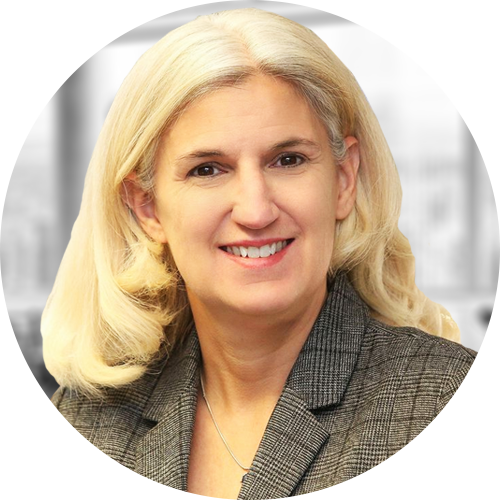
KARLA J. F. SATCHELL
Northwestern University
INFECTIOUS DISEASES • BACTERIA RESISTANCE • STRUCTURAL BIOLOGY
Research Description
Karla Satchell is Professor of Microbiology and Immunology at the Feinberg School of Medicine at Northwestern University. Her research is diverse and centers around understanding the mechanisms and biochemistry of toxins that play a key role in the spread of infection throughout an organism. Her research is crucial to developing better treatments for patients suffering from infections. In 2017, Prof. Satchell became the principal investigator of a multi-site center focused on antimicrobial resistant bacteria. Her most recent work utilizes structure biology to understand the mechanism of an enzyme known to cause the spread of cancer, showing that this enzyme can be redirected to reduce the formation of cancerous tumors. In 2020, Prof. Satchell’s center shifted its focus to the structural biology of COVID-19, mapping the atomic structure of two critical proteins that help the virus survive in humans. This mapping will help ensure that future drugs will help the immune system detect and eradicate the virus faster.
In recognition of her work, Prof. Satchell received the Burroughs Wellcome Investigators in Pathogenesis of Infectious Diseases Award in 2006. She has been elected as a Fellow of the American Academy of Microbiology and the American Association for the Advancement of Science. Prof. Satchell is also active in teaching graduate students, and in 2016 was awarded the Driskill Dean’s Award for Excellence in Teaching. She has mentored 12 graduate students and 16 post-doctoral fellows.
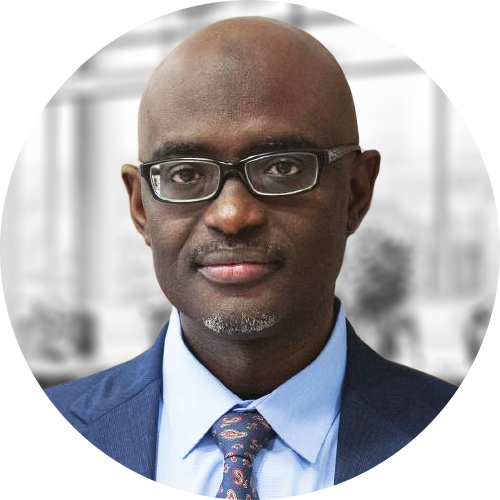
SARKI a. ABDULKADIR
Northwestern University
CANCER • UROLOGY • MALE HEALTH
Research Description
Sarki A. Abdulkadir is the John T. Grayhack Professor of Urological Research, Vice Chair for Research, and Professor of Urology and Pathology at Northwestern University Feinberg School of Medicine. Prof. Abdulkadir’s research is focused on understanding the molecular mechanisms that drive cancer initiation, progression, and recurrence with the ultimate goal of developing therapies that interfere with these cancer processes. His work is particularly focused on prostate cancer, and has shed light on its cellular origins and cancer gene cooperation in tumor growths. Prof. Abdulkadir’s research has led to the discovery of novel therapeutic agents currently in preclinical and clinical development.
Prof. Adbulkadir’s recent novel therapeutic discovery was published in the journal Cancer Cell and was chosen to advance further in Northwestern’s NewCures drug development incubator. Over his career, Prof. Abdulkadir has published over 60 papers. He is also an elected member of the American Society for Clinical Investigation and sits on the Council for Minorities in Cancer Research at the American Association for Cancer Research. For his outstanding research, Prof. Abdulkadir has also received the Tripartite Legacy Prize from Northwestern’s Feinberg School of Medicine. He has also been recognized as a talented lecturer, receiving the 2019 Diversity Lecturer Award from the American Society for Andrology.
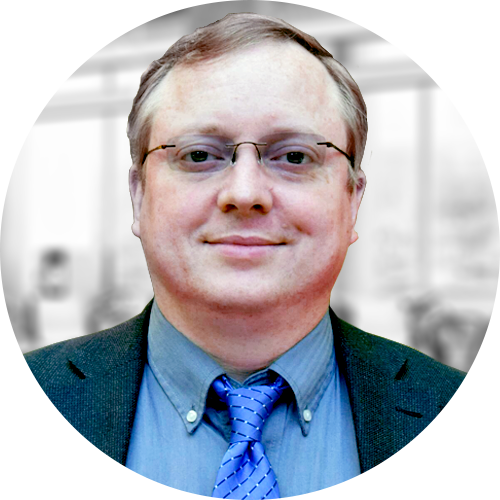
BOYD M. GOODSON
Southern Illinois University
PHYSICAL CHEMISTRY•DIAGNOSTICS • MRI
Research Description
Boyd Goodson is a Professor in the Department of Chemistry and Biochemistry and an Acting Associate Dean of the College of Agricultural, Life, and Physical Sciences at Southern Illinois University Carbondale (SIUC). Specializing in physical chemistry, Prof. Goodson has been a researcher in the fields of optical and NMR (nuclear magnetic resonance) spectroscopies for more than 20 years. One of Prof. Goodson’s main research interests is the development of new MRI contrast agents used to detect and track various diseases. These contrast agents are designed to work in areas of the body where diseases are particularly difficult to image, such as the lungs. So far, he has developed two chemical processes that can potentially lead to better MRI contrast agents, and is continuing to study their efficacy.
Prof. Goodson has brought in more than $6.2 million in external grants since 2003, including grants from National Science Foundation, National Institutes of Health, and Department of Defense to support his work. Prof. Goodson has also published over 80 papers, co-authored nearly 140 conference presentations, and has 9 patents (or patents pending). For his outstanding research, Prof. Goodson has received the NSF Career Award, the Cottrell Scholar Sward from Research Corporation, induction into the National Academy of Inventors, the CURCA Award of Distinction from SIUC, and SIUC’s University Scholar Excellence Award (which comes with the title, “Distinguished Scholar). Finally, Prof. Goodson is also a founding director of XeUS Technologies LTD., a startup led and initiated by a former SIUC student.
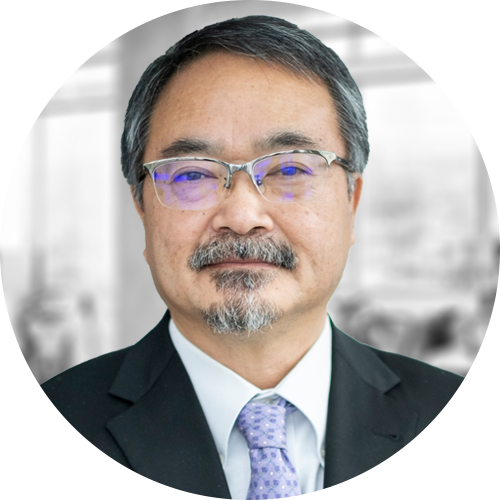
Rosalind Franklin University of Medicine and Science
HIV • HEALTH DISPARITIES • CANCER
Research Description
Johnny J. He, Ph.D. is Director of the Center for Cancer Cell Biology, Immunology and Infection and Chair of the Department of Microbiology and Immunology at Chicago Medical School of Rosalind Franklin University of Medicine and Science. His research areas include HIV and cancer, among others and are currently funded by NIH grants of about 1.2 million dollars. He is a renowned HIV researcher, having completed multiple studies throughout his career that have contributed to creating better targeted therapeutics for HIV patients. He is also a co-investigator of a study funded by the NIH to look at health disparities in minority women, in particular looking at cancer, HIV, obesity, cardiovascular disease and stroke.
Prof. He has secured over $16 million dollars in federal research grants over his 23-year career, and published over 100 peer-reviewed publications. He has published three peer-reviewed publications in the last 12 months in the Journal of Aging and Disease (2020), Journal of NeuroVirology (2019), and Journal of Molecular Cancer (2019). The first two publications focused on HIV and the latter on melanoma. He has mentored 25 doctoral students and a number of high school students, undergraduate students, postdoctoral fellows, and junior faculty. Many of his doctoral students have successfully transitioned to become independent scientists at academic institutions and biotech industries. He has served as Editor or Associate Editor for six scientific journals, President of the Society of NeuroImmune Pharmacology, and a chartered member or ad hoc member on over 120 NIH grant review panels.

jEREMY AMIEL ROSENKRANZ
Rosalind Franklin University of Medicine and Science
NEUROLOGY •AMYGDALA CIRCUITS •PSYCHIATRIC DISORDERS
Research Description
In addition to his recent NIH grant, Prof. Rosenkranz’s research has been supported by numerous organizations, including the Simons Foundation Autism Research Initiative (SFARI). Prof. Rosenkranz has authored or co-authored over 50 papers.
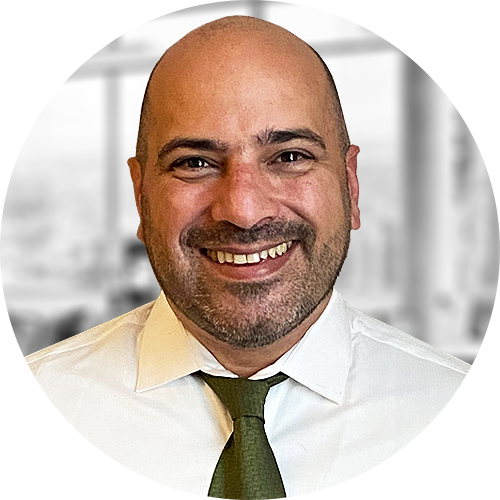
ANDRES VIDAL-GADEA
Illinois State University
CELL BIOLOGY • DISEASE PROGRESSION • MUSCULAR DYSTROPHY
Research Description
Prof. Vidal-Gadea has published 16 peer-reviewed articles in journals such as the Proceedings of the National Academy of Science of the USA and eLife. Since joining ISU, Prof. Vidal-Gadea has given twenty invited lectures across the country and internationally (including Germany, Uruguay, Canada, Argentina). He was awarded Illinois State University’s Research Initiative Award for his research and was recognized by the McLean’s County Chamber of Commerce’s STEM Professional of the Year Award and the Louis Stokes Alliance for Minority Participation Faculty Mentor Award in 2018 for his work mentoring students. Since joining ISU in 2015, Prof. Vidal-Gadea has mentored 130 students, resulting in over a hundred scientific abstracts, as well as 24 undergraduate, 9 high school, and 11 graduate student co-authored manuscripts.
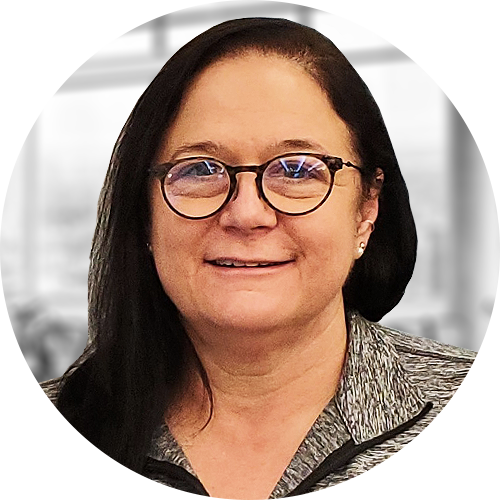
ELIZABETH GAILLARD
Northern Illinois University
OCULAR DISEASES • NEW DRUGS •EARLY DISEASE DETECTION
Research Description
Elizabeth Gaillard is Distinguished Research Professor in the Department of Chemistry and Biochemistry at Northern Illinois University (NIU). Prof. Gaillard’s research is changing the way sufferers of ocular diseases are diagnosed and treated, such as age-related macular degeneration (AMD) and diabetic retinopathy. Gaillard has developed an inactive drug that turns active once it enters the body to treat and prevent damage to healthy eye tissue. She has also developed a drug delivery system that delivers a time-released drug, reducing the frequency of painful drug injections into the eye. Prof. Gaillard’s research has also led to new methods of detecting inflammation in the human retina, which can potentially detect diabetes and other eye diseases up to seven years earlier than blood tests. Early detection allows a patient to seek treatment sooner and enables doctors to non-invasively monitor the progression of the disease.
Prof. Gaillard currently has over 80 publications and six patents for her work. To commercialize her research portfolio, she created Therome Innovation Partners and is engaging with the entrepreneurial community at NIU, MATTER, and Innovation DuPage to build the company. In addition to her research, instruction and entrepreneurial endeavors, Gaillard was instrumental in the formation of the Molecular Analysis Core (MAC) Lab at NIU. The MAC Lab is a premier research resource sponsored by Shimadzu Scientific Instruments, offering analytical and instructional expertise in mass spectrometry. As director, Gaillard and her team can provide qualitative and quantitative analyses of small molecules, biopolymers and proteins to other researchers and corporate partners.
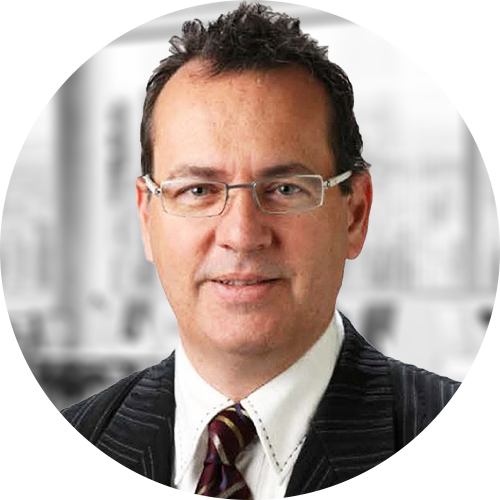
JEFF HUBBELL
University of Chicago
AUTOIMMUNE DISEASE • BIOMATERIALS • IMMUNOTHERAPY
Research Description
Jeff Hubbell is Professor in Tissue Engineering and Deputy Dean for Development at the University Of Chicago Pritzker School Of Molecular Engineering. He is also the Principle Investigator at Hubbell Lab. Prof. Hubbell designs materials that assemble in such a way that they can stimulate the immune system to fight infection or malignancy—or turn off some aspects of the immune system to address autoimmune diseases such as type 1 diabetes. Hubbell has coined the term “immuno-modulatory materials” to describe this newly emerging field of research. According to the National Academy of Engineering, Hubbell is “inventing biomaterials that are now widely used in regenerative medicine.”
Prof. Hubbell’s recent publications focus on a novel immunotherapy technology with broad therapeutic applications, such as developing synthetic vaccines, understanding patterns of wound healing and ways to combat inflammation. The translational impact of his work has earned him membership to the National Academy of Medicine and the National Academy of Engineering. The magnitude of Hubbell’s innovations are evident in his three startup companies: Anokion, ClostraBio, and Arrow Immune. In addition to the startups Prof. Hubbell has helped found, he holds more than 75 patents. Prof. Hubbell is an elected fellow of Biomaterials Science and Engineering, of the American Association for the Advancement of Science, and of the American Institute of Medical and Biological Engineering.

cATHRYN NAGLER
University of Chicago
IMMUNOLOGY • FOOD ALLERGY •DRUG DEVELOPMENT
Research Description
Cathryn Nagler is the Bunning Family Professor in the Biological Sciences Division and the Pritzker School of Molecular Engineering at the University of Chicago. Prof. Nagler has a long-standing interest in the mechanisms governing non-responsiveness to food. Her most recent work shows that tolerance to dietary antigens requires a bacteria-induced barrier protective response. . Currently, there is no way to preemptively treat food allergies, with patients instead requiring emergency treatment for accidental exposures. Nagler, and her academic startup ClostraBio are working to develop one of the first microbiome-based pan-allergen therapeutics for food allergy. This work will improve the lives of food allergy patients. The team is planning a pre-investigational new drug meeting with the FDA this year.
Dr. Nagler serves in national and international leadership roles, many of which are related to publication and teaching, for the American Association of Immunologists, the Society for Mucosal Immunology and Federation of Clinical Immunology Societies. She also participates in numerous review panels. Dr. Nagler received the Distinguished Faculty Award for Leadership in Program Innovation from the University of Chicago in 2017. She was listed among Crain’s Chicago Business Tech Top 50 Women in 2018 and Notable Women in HealthCare in 2019 for her work with ClostraBio. Academic honors include the American Academy of Allergy, Asthma and Immunology (AAAAI) Foundation and Louis M. Mendelson Award Lectureship and the Siegel Lectureship at UCLA. She was elected as a Distinguished Fellow of the American Association of Immunologists in 2020.
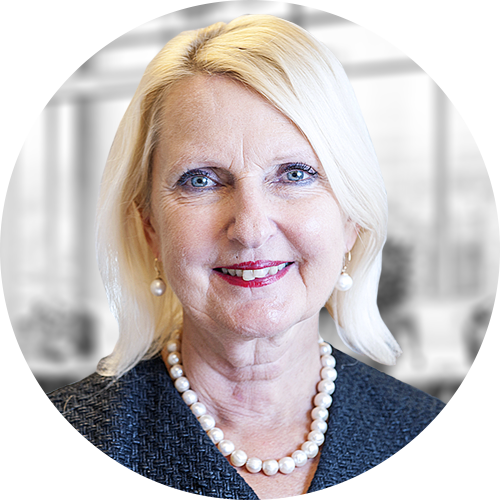
MARIA SIEMIONOW
University of Illinois at Chicago
MICROSURGERY • TISSUE & ORGAN TRANSPLANT • MUSCULAR DYSTROPHY
Research Description
Maria Siemionow is Professor and Director of Microsurgery Research at the University of Illinois at Chicago’s (UIC) College of Medicine. Her research is aimed at reducing organ and tissue transplant rejection and the need for lifelong immunosuppressive drugs typically used by transplant patients. An additional focus for Prof. Siemionow is developing new surgical techniques to enhance nerve regeneration after tissue or organ transplants. She is working to determine whether cells made by fusing donor and recipient bone marrow stem cells affect the success of tissue and organ transplants. Prof. Siemionow and her son, Prof. Kris Siemionow, Associate Professor of Orthopedic Surgery in the UIC College of Medicine, are co-founders of Dystrogen Therapeutics SA. Dystrogen Therapeutics aims to advance the use of blended cells to treat Duchenne muscular dystrophy.
Prof. Siemionow is a member of the academic-industry team known as the Warrior Restoration Consortium, which focuses on the development of clinical therapies and new treatments for wounded soldiers as part of the second phase of the Armed Forces Institute for Regenerative Medicine (known as AFIRM II). In 2008, Siemionow led the team of surgeons that performed the first near-total face transplant in the United States. At UIC, her clinical focus is on hand surgery and peripheral nerve surgery. She was also recognized as one of 2014’s “Great Immigrants” by the Carnegie Corporation of New York. This annual tribute honors naturalized citizens who have made notable contributions in the fields of science and medicine, the arts, politics, business, and technology.
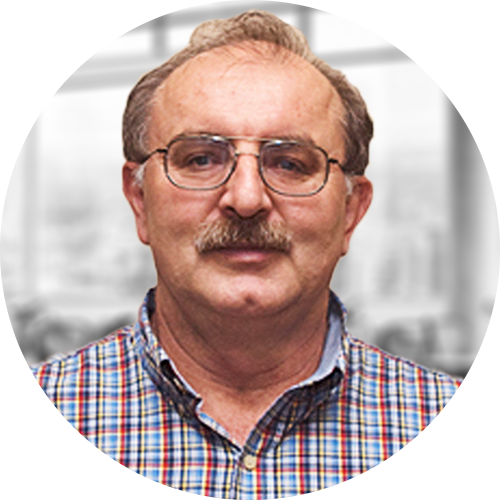
Illinois Institute of Technology
APPLIED MATH• FINANCIAL MODELING • UNCERTAINTY & RISK
Research Description
Tomasz R. Bielecki is Professor of Applied Mathematics at the Illinois Institute of Technology (Illinois Tech). Prof. Bielecki is a renowned expert in quantitative finance. He has spent his career employing novel, deep mathematics to model crucial aspects of financial markets. His models aim to address uncertainty found in many financial market models used today and have been recognized for their innovative methodology. Most recently, Prof. Bielecki has been working on a model that is used to understand random phenomena in areas such as finance, insurance, seismology, neuroscience, and genetics. The piece is titled “Structured Dependence Between Stochastic Processes” and was published by the Cambridge University Press in August 2020.
Prof. Bielecki is an author of numerous research publications in areas related to probability and mathematical finance. He is a co-author of “Credit Risk: Modeling, Valuation and Hedging,” which was published in 2002 and a co-author of “Credit Risk Modeling”, which was published by the Osaka University Press in 2010. His co-authored book “Counterparty Risk and Funding,” was published in 2014. Prof. Bielecki has been a recipient of several research grants from the National Science Foundation (NSF), as well as research grants sponsored by the Moody’s Investors Service. His most recent NSF grant was awarded for the novel and transformative research in the area of Markov decision processes with non-standard optimality criteria and under model uncertainty.
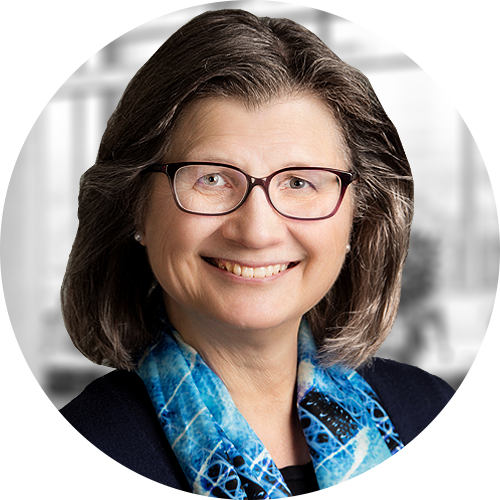
MARYELLEN GIGER
University of Chicago
DIAGNOSTICS • AI • BREAST CANCER
Research Description
Prof. Giger has received numerous awards, including the William D. Coolidge Gold Medal from the American Association of Physicists in Medicine and the iBio iCON Innovator Award in 2018. She has over 200 peer-reviewed papers and more than 30 patents. Her company Quantitative Insights, Inc. developed QuantX, the first FDA-cleared, machine-learning-driven system to aid in cancer diagnosis (CADx). In 2019, QuantX was named one of TIME magazine’s “Inventions of the Year.” QuantX was acquired by Paragon Biosciences in 2019.
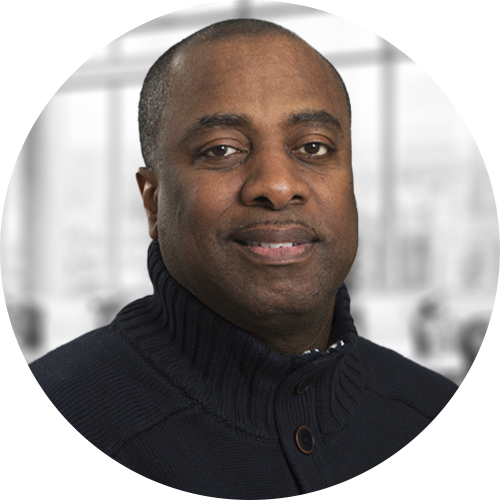
DEJURAN RICHARDSON
Lake Forest College
CLINICAL TRIALS • DATA ANALYSIS •GROUP-BASED INTERVENTION
Research Description
Prof. Richardson serves as an appointed member of the Clinical Trials Review Committee of the National Heart, Lung, and Blood Institute. He has been the Chief Analyst and/or Director of Data Management for several noted clinical trials, including the African-American Antiplatelet Stroke Prevention Study (AAASPS), The Heart Failure Adherence and Retention Trial (HART), and the Congestive Heart Failure Adherence Redesign Trial (CHART). In addition to appointments to several scientific review committees of The National Academies of Sciences, Engineering, and Medicine, he has served as an appointee to the scientific advisory boards of several national and international clinical trials, including the Clarification of Optimal Anticoagulation Through Genetics Study (COAG), the Insulin Resistance Intervention After Stroke Trial (IRIS), and the Carotid Revascularization for Primary Prevention of Stroke Trial (CREST-2).
ENERGY & sustainability
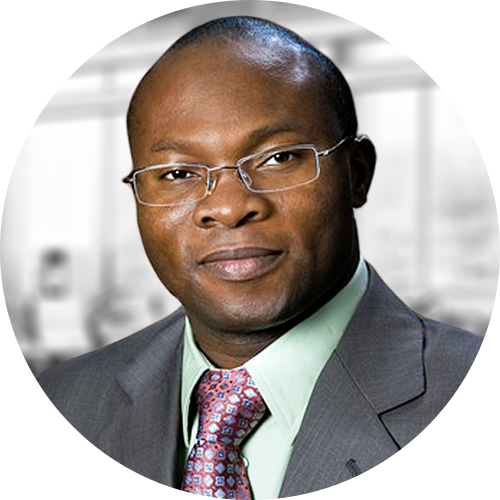
JEAN-LUC AYITOU
Illinois Institute of Technology
SOLAR CHEMISTRY • ORGANIC ELECTRONIC DEVICES •BIOLOGICAL IMAGING
Research Description
Prof. Ayitou has published several peer-reviewed papers, and is recipient of the National Science Foundation (NSF) Early Career Award. He also serves on many panels, including at NSF and Argonne National Laboratory, where he is presently the Vice-Chair of the Users Executive Committee. He has presented his research at several conferences, including the American Chemical Society National Meeting, Reaction Mechanism Conference, International Union of Pure and Applied Chemistry’s Photochemistry Conference, the Frontier Areas in Chemical Technologies (India), and the 1st International Meeting in Excited State Aromaticity & Antiaromaticity (Sweden). He has also been invited as guest lecturer at the University of Louisville. Most recently, Prof. Ayitou co-chaired the successful Photochemistry Symposium for Young Investigators, which brought an audience of over 900 attendees from 43 countries.

VINAYAK p. dRAVID
Northwestern University
NANOTECHNOLOGY • WASTE REMEDIATION •PROTOTYPING
Research Description
Vinayak Dravid is the Abraham Harris Chaired Professor of Materials Science and Engineering at Northwestern University. He is also the founding director of the Northwestern University Atomic and Nanoscale Characterization Center (NUANCE) and founding director of the Soft and Hybrid Nanotechnology Experimental (SHyNE) Resource – the National Nanotechnology Coordinated Infrastructure (NSF-NNCI) Node in the Midwest region. Recently, Prof. Dravid’s research group has developed a reusable and highly porous smart sponge platform that can absorb more than 30 times its weight in oil. The sponge could be used to inexpensively and efficiently clean-up oil spills without harming marine life. This work has been featured prominently in the press, with international interest in this potentially game-changing oil cleanup technology. The sponge platform is being expanded to address other environmental remediation challenges such as excess nutrient runoff (responsible for green algae blooms), heavy metal and oil contamination among others.
Prof. Dravid is a highly cited researcher with the citation H-index of almost 100 (on Clarivate Analytic list since 2017) and has authored over 550+ publications. He also holds dozens of patents, many which are licensed to startup companies. He recently co-founded a startup called MFNS Tech with Dr. Vikas Nandwana to commercialize multifunctional nanostructures (MFNS) for environment and energy sector applications. Professor Dravid has served as consultant and advisor to biochemistry companies, IP firms, the Museum of Science and Industry at Chicago, NGOs and more about science, technology, and policy. He has been elected Fellow of many societies; Microanalysis Society (MAS), Royal Microscopical Society (RMS), inception class of fellows of Microscopy Society of America (MSA), among other honors/awards.
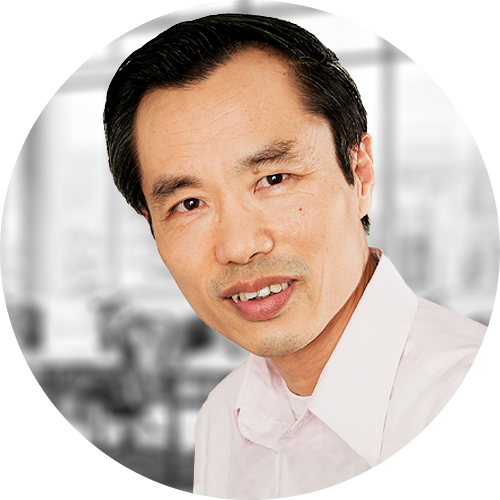
LEON SHAW
Illinois Institute of Technology
NANOMATERIALS • LI-ION BATTERIES • HYDROGEN STORAGE
Research Description
Leon Shaw is the Rowe Family Endowed Chair Professor in Sustainable Energy and Professor of Materials Science and Engineering in the Department of Mechanical, Materials and Aerospace Engineering at the Illinois Institute of Technology (Illinois Tech). His expertise is in novel materials synthesis and processing for energy storage and structural applications. Prof. Shaw focuses on eco-friendly technologies for the manufacturing of lithium ion batteries. His innovations have led to high power, long cycle materials for lithium ion batteries that are also cost-effective. Prof. Shaw has also been a pioneer in researching technologies and materials to manufacture sodium ion batteries, another type of rechargeable battery. Illinois Tech is in the process of filing full patent applications for Prof. Shaw’s novel technology.
Prof. Shaw’s research on lithium ion batteries has led to an Energy Award in 2018. He has authored or co-authored more than 300 publications in materials synthesis and processing for energy and structural applications. His contributions to materials synthesis and energy storage have been featured by many publications, including High Tech Ceramics News, Small Times Magazine, Chemical Engineering, Ceramic Industry, The Hydrogen Journal, Battelle Newsletter, and NSF Highlights. Prof. Shaw is a Member of EU Academy of Sciences (2019) and a Fellow of the International Association of Advanced Materials (2020), among others. Currently, Prof. Shaw has four ongoing NSF grants and one Argonne National Laboratory sponsored project. All of these projects are related to materials synthesis and processing for lithium ion and sodium ion battery applications.
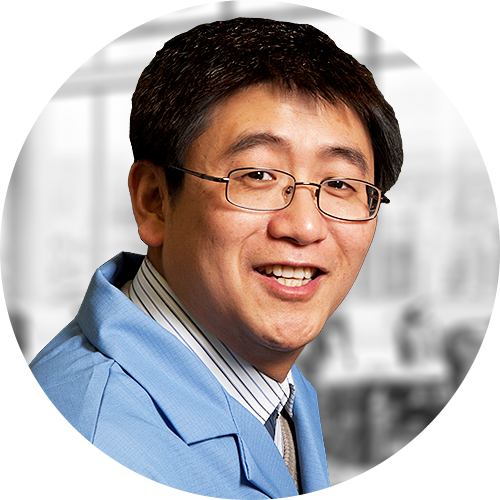
Tao xu
Northern Illinois University
SUSTAINABILITY • RENEWABLE ENERGY •SOLAR ENERGY
Research Description
Tao Xu is Presidential Research, Scholarship, and Artistry Professor in the Department of Chemistry and Biochemistry at Northern Illinois University (NIU). Prof. Xu and his group are developing novel, environmentally friendly materials that convert sunlight to electricity, and turn CO2 and water to liquid fuels. He often collaborates with Argonne National Laboratory (ANL) and National Renewable Energy Laboratory (NREL). His latest research with NREL involves studying a type of crystal, called perovskite, as a potential cheaper but more efficient material to those currently used in solar panels. NIU and NREL are developing a technique to minimize toxic leakage that can occur when applying with perovskite crystals. A safer application process can lower production and maintenance costs of perovskite-based solar panels. His recent work with ANL on turning CO2 and water to ethanol has also been widely highlighted.
Prof. Xu’s research on nanomaterials is well recognized nationally and internationally. He is often invited as a speaker at renowned institutes and universities. Xu has over 90 peer-reviewed publications and four patents. Prof. Xu has earned many accolades at NIU, including the Excellence in Innovation Award. His recent work with NREL and ANL was published on Nature and Nature Energy in 2020, respectively. Prof. Xu’s work has helped put NIU on the map as an innovation hub in the field of material science, attracting more than a million dollars in grant funds from agencies such as the Department of Energy and National Science Foundation, including a five-year NSF CAREER grant in 2012.

